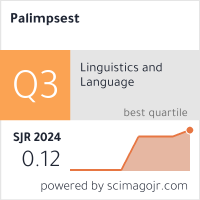WORKING WITH ARTIFICIAL INTELLIGENCE IN GERMAN LESSONS: A CASE STUDY USING THE EXAMPLE OF CHATGPT
DOI:
https://doi.org/10.46763/PALIM251019227jAbstract
The integration of artificial intelligence (AI) into German lessons opens up new perspectives and challenges for teachers and learners alike. This case study examines the use of AI-supported learning platforms and tools in German lessons at a German-Albanian language school and analyzes the effects on the learning process and student motivation. The focus is on the use of AI to improve language skills, especially in the areas of text composition, grammar, vocabulary and written communication. As part of the case study, a questionnaire was conducted on learning motivation before and after the use of an AI-based tool such as Chatbot/Chatgpt. The aim was to measure changes in motivation, learning behavior and acceptance of digital tools. The effectiveness of these technologies in day-to-day teaching is evaluated through classroom observations and discussions with students. The results show that AI tools can promote individual learning, enable real-time feedback and increase learner motivation. At the same time, challenges such as the possible dependence on technology and the need for a balanced integration of AI and traditional teaching methods were identified. This case study offers a practice-oriented insight into the opportunities and limitations of working with artificial intelligence in the German classroom and provides valuable insights for the future design of teaching concepts.
Keywords: artificial intelligence; German language teaching; case study; language competence; motivation; adaptive learning platforms; feedback systems.
Downloads
Downloads
Published
Issue
Section
License
The intellectual property and copyright on the original content of all scientific contributions in the published paper shall remain with the authors. Authors give permission to the JAPS owner to publish the paper. All authors agree to publish the paper under Attribution-NonCommercial-NoDerivatives 4.0 International license (CC BY-NC-ND 4.0)


